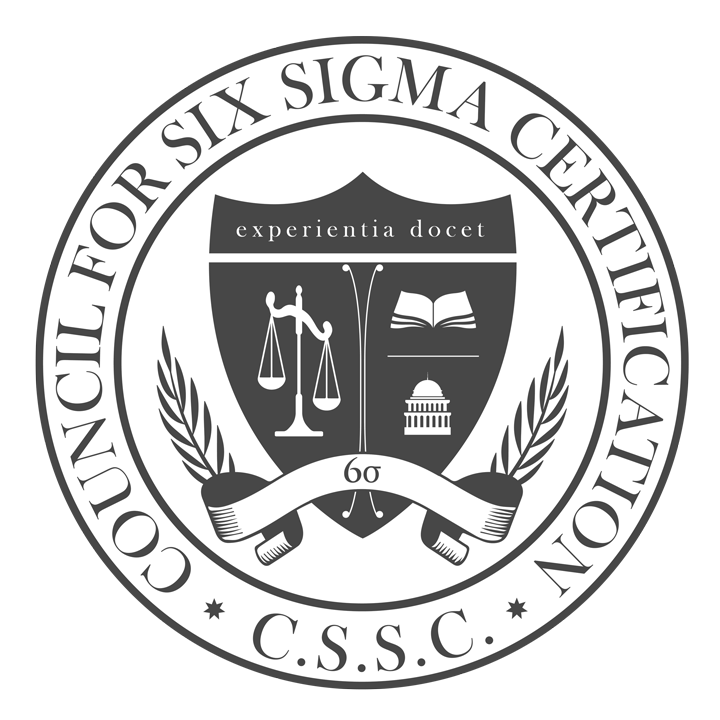Online Master of Science in Supply Chain Management Concentration in Risk Management
The online MS in Supply Chain Management concentration in Risk Management at Boston University’s Metropolitan College (MET) will provide you with a solid understanding of risk-related issues in managing global supply chains. Learn to evaluate cost and resource requirements associated with major supply chain initiatives that require careful project planning, including statistical analysis of uncertainties that create operational risks; quantify supply chain risks in terms of their likelihood and impacts so that appropriate mitigation strategies can be implemented; and develop systematic process-oriented approaches to evaluate supply chain performance using statistical modeling with Six Sigma principles and techniques.
The focus of the Risk Management concentration of the MSSCM is to ensure that you are prepared for the wide variety of global events that can disrupt a supply chain. These can encompass financial, reputational, and geopolitical risks, as well as natural and man-made disasters, cyberattacks, and “black swan” events such as the COVID-19 pandemic or the 2011 Japanese tsunami. Sixty-two percent of supply chain leaders surveyed in the 2021 Deloitte Global Resilience Report believe similar large-scale disruptions are likely to occur in the future.
Deloitte’s report also highlights the need for risk managers, with only 30 percent of those surveyed saying their organizations can quickly adapt and pivot in response to disruptive events—and just 34 percent confident that they can lead their organizations through future disruptions. A 2020 supply chain survey by the Capgemini Research Institute reveals that 57 percent of organizations plan to increase investment in supply chain resilience, and 84 percent view “increasing crisis-preparedness using simulations” as a key post-pandemic priority.
To avoid major upheavals to normal supply chain operations, the industry requires talented supply chain managers who have the state-of-the-art skills to implement solid risk-mitigation plans, establish end-to-end supply chain visibility, and offer data-driven, agile solutions. With a master’s degree, your opportunities increase: In their 2021 career and salary survey, the Association for Supply Chain Management (ASCM) found that the annual median salary for supply chain professionals with a master’s degree is $99,900.
Students who complete the Supply Chain Management master’s degree concentration in Risk Management will be able to:
- Demonstrate the ability to use interlinked data inputs, analytics, and systems to support decision-making in a supply chain that is geographically dispersed and culturally diverse.
- Utilize financial statements and use quantitative analysis tools to create a resilient supply chain by assessing the threats and vulnerabilities faced by a global supply chain decision-maker, including impacts of climate change, pandemics, cybersecurity, and the global economy.
- Utilize mathematical modeling and optimization theory by choosing the appropriate quantitative tools to support supply chain operations.
- Evaluate cost and resource requirements associated with major supply chain initiatives that require careful project planning, including statistical analysis of uncertainties that create operational risks./li>
- Apply a systematic process-oriented approach to evaluating supply chain quality using statistical modeling with Six Sigma principles and techniques.
Awards & Accreditations
 Accredited member of AACSB International―The Association to Advance Collegiate Schools of Business (through BU’s Questrom School of Business)
Accredited member of AACSB International―The Association to Advance Collegiate Schools of Business (through BU’s Questrom School of Business)

Supply Chain Management program courses Operations Management: Business Process Fundamentals (MET AD 605) and Quality Management (MET AD 734) may qualify you for Green Belt Training accredited by the Council for Six Sigma Certification—an Official Industry Standard of Six Sigma Accreditation for Six Sigma training providers worldwide.
 Newsweek magazine ranked Boston University’s online programs #4 in the nation in its 2023 survey.
Newsweek magazine ranked Boston University’s online programs #4 in the nation in its 2023 survey.
Why Choose BU’s Master of Science in Supply Chain Management?
- The Supply Chain Management program offers the flexibility of online or on-campus study formats, ensuring that students can earn their degree the way that suits them the best.
 In 2025, Metropolitan College’s online master’s degrees in management were ranked #10 among the Best Online Master's in Business Programs (Excluding MBA) by U.S. News & World Report.
In 2025, Metropolitan College’s online master’s degrees in management were ranked #10 among the Best Online Master's in Business Programs (Excluding MBA) by U.S. News & World Report.- Through Boston University’s Questrom School of Business, BU MET is an accredited member of AACSB International―The Association to Advance Collegiate Schools of Business.
- Successfully complete Quality Management (MET AD 734) and you may qualify to earn a Six Sigma Green Belt accredited by the Council for Six Sigma Certification. By also completing Business Process Fundamentals (MET AD 605) you are eligible to earn a Lean Six Sigma Green Belt. A Six Sigma certificate can help you increase productivity and decrease costs, enhancing your ability to deliver top-quality products and services to consumers in a limited amount of time. Eligibility is determined by satisfactory performance on final examinations in each course.
- Capstone projects allow you to tackle a real-world project from a company and benefit from practical experience and opportunities to network, with the potential for internships and jobs. Each project is executed by a diverse team of students under the guidance of a BU professor in liaison with the client firm. Clients that have partnered with us as part of capstone projects include the City of Boston, Construction Specialties, Henkel Corporation, LEGO, Loctite, Massachusetts Bay Transportation Authority, Raytheon Technologies, Sanofi Pharmaceuticals, SharkNinja, and Waters Corporation, among others. View completed projects as well as capstone projects in progress.
- Collaborate with professors and industrial practitioners in BU MET’s Decision Sciences Research Laboratory, while applying your analytical skills to solve current problems facing industrial organizations.
- Learn from expert faculty from MET’s Department of Administrative Sciences, and benefit from a unique combination of dynamic academic curricula, the latest educational technologies, and direct professional contact with industry leaders in the supply chain management area.
- Focus on design, optimization, and operation of a global supply chain process, while gaining expertise in efficient production, global supply chain coordination, risk mitigation, strategic logistics management, and import-export operations.
- Benefit from advanced pedagogy and the latest digital-learning concepts introduced in the online environment, such as video conferencing, live lectures and seminars, proctored assessments, access to proprietary software applications within virtual labs and cloud servers/technologies, creative learning, teamwork, and competitive games offered with the help of advanced business simulations.
Meet Dr. Vladimir Zlatev, one of the faculty members you’ll work with in the Administrative Sciences department.
Career Outlook
Operations Research Analysts
25% increase in jobs through 2029
$86,200 median annual pay in 2020
Market Research Analysts
18% increase in jobs through 2029
$65,810 median annual pay in 2021
Management Analysts
11% increase in jobs through 2029
$87,660 median annual pay in 2020
Sales Managers
4% increase in jobs through 2029
$132,290 median annual pay in 2020
Logisticians
4% increase in jobs through 2029
$76,270 median annual pay in 2020
Industry Trends
A combined $1 trillion at risk in the supply chains of 125 large corporate buyers is linked to environmental issues, reported the Carbon Disclosure Project, a non-profit clearinghouse of sustainability data.
—Supply Chain Resilience for an Era of Turbulence, The Economist Intelligence Unit, 2020
Tuition & Financial Assistance
Money Matters
Boston University Metropolitan College (MET) offers competitive tuition rates that meet the needs of part-time students seeking an affordable education. These rates are substantially lower than those of the traditional, full-time residential programs yet provide access to the same high-quality BU education. To learn more about current tuition rates, visit the MET website.
Financial Assistance
Comprehensive financial assistance services are available at MET, including scholarships, graduate loans, and payment plans. There is no cost to apply for financial assistance, and you may qualify for a student loan regardless of your income. Learn more.
Curriculum
Students must complete the degree core courses and Risk Management concentration requirements. Students who take MET AD 734 and meet certain performance standards will earn Six Sigma Green Belt certification. Students who take both MET AD 519 and MET AD 734 and meet certain performance standards will earn a Lean Six Sigma Green Belt.
Prerequisites
Each student enrolling in the program is required to take Mathematics and Statistics in Management (MET AD 510) in their first semester. This foundation course may be counted towards one of the electives. Students who have already taken both a math and a statistics course with a B+ or higher may petition to waive MET AD 510. Additionally, students have access to the following free self-paced laboratories: MwAM: Mathematics with Applications in Management and SwAM: Statistics with Applications in Management.
Courses
A total of eight courses (32 credits) is required.
Degree Core Courses
(Four courses/16 credits)
METAD519 Operations and Process Analysis
This course will provide students with the analytical tools to analyze, manage, and improve manufacturing, service, and business processes. Coverage includes various options to lower operational costs and improve responsiveness to customers' needs, including operating system design, product & service design, capacity analysis & buffering, waiting line optimization, and process quality analysis using statistical approaches. Quantitative methods include application of stochastic simulation, analysis of random outcomes, statistical analysis routines (confidence intervals, hypothesis testing, machine learning), system reliability analysis, and statistical process control. The Deming philosophy of management, Lean operations principles, and Six Sigma process improvement methodologies form the underlying foundation of the course coverage. [4 credits]
METAD632 Financial Concepts
Introduction to the concepts, methods and problems of accounting and financial analysis. Includes accounting principles, measurement and disclosure issues, financial statement analysis, time value of money, cash flow projection and analysis, capital budgeting and project evaluation, bond and equity valuation, cost of capital and capital structure. 4 cr. Effective Fall 2021, this course fulfills a single unit in each of the following BU Hub areas: Quantitative Reasoning II, Critical Thinking. [4 credits]
METAD680 Global Supply Chains
This course covers the quantitative analysis tools to support operations management for a supply chain that is geographically dispersed and culturally diverse. The tools necessary to assure that the products/services are delivered/provided in the quality and timely manner include demand forecasting, inventory and capacity buffer optimization, delayed differentiation, statistical risk pooling, and stochastic inventory optimization. These tools are applied to decisions such as offshoring, multi-country outsourcing, push-pull, reverse supply chains, and risk mitigation. Particular attention is given to sustainability, information technology and digitalization, and creating resiliency. [4 credits]
METAD715 Quantitative and Qualitative Decision-Making
The purpose of this course is to help improve business problem solving and managerial decision-making through the use of quantitative and qualitative decision-making tools and techniques. This course will provide the student with an overview of how decisions are made to solve management problems in the business environment. It introduces the fundamental concepts and methodologies of the decision-making process, problem-solving, decision analysis, data collection, probability distribution, evaluation, and prediction methods. Students will learn how to apply different quantitative and qualitative analytical tools commonly used in business to provide a depth of understanding and support to various decision-making activities within each subject area of management. Through the use of case studies of decisions made by managers in various production and service industries and a business simulation package specifically prepared for this course, the scope and breadth of decision-making in business will be described. [4 credits]
Operations and Process Analysis (MET AD 519) replaces Operations Management: Business Process Fundamentals (MET AD 605). Students who have already taken AD 605 DO NOT need to take AD 519.
Concentration Requirements
(Four courses/16 credits)
METAD503 Enterprise Risk Management
This overview course examines the management issues involved with assessing the security and risk environments in both the private and public sectors in order to assure continuous system-wide operations. The course studies the elements of operational and technological risk assessment and operational continuity using a project management framework and quantitative risk metrics. Students are exposed to the role of the firm in crisis response and management as well as the terms, systems, and interactions necessary to assure continuous operations. Topics include: the role and need for comprehensive assurance strategy and planning; information security; an overview of the system-wide structure; the social and emotional impact on the workforce as well as its effect on productivity; and the organizational infrastructure relating to national, regional, and international compliance. [4 credits]
METAD617 Business Continuity Management
The course presents, assesses, and discusses the contemporary theories, methods and practices related to business continuity (BC), business continuity management (BCM) and resiliency planning. The course incorporates the underpinnings of enterprise-wide risk management (ERM); however, it is designed to focus on broad-based threats, vulnerabilities, unexpected events, emergencies, and crises that may impacts organizations and their leaders and professionals. The course focuses on the design, development and applications of resilience, emergency planning, crisis management, BC, and disaster recovery used by organizations in the private sector. It presents a comprehensive, cutting-edge technologies pertaining BCM in complex organizations and challenging environments. Technological innovations are used to involve a complex array of high-level developments that result in transitions and transformations of businesses. Finally, the environmental considerations center on connections between business and the natural law. [4 credits]
METAD734 Six Sigma Quality Methods
Course participants will be exposed to the fundamental principles involved in the analysis and management of quality for enterprises and their supply chain. Quality is defined in the broadest sense, encompassing all performance components that drive customer satisfaction. The course focuses on management principles, statistical modeling and analysis, and their application in a variety of industrial, service, healthcare, and educational environments. Topics include the Deming philosophy of management, Six Sigma and the DMAIC project framework, quality certification systems, statistical data analysis & presentation, statistical modeling using control charts, and statistical analysis of process capability. Students will earn a Six Sigma Green Belt based on satisfactory performance on the final examination. [4 credits]
And one of the following:
METAD510 Mathematics and Statistics in Management
This introduction to core statistical and mathematical concepts builds the foundation needed to thrive in a management career. Develop the skills, tools, and knowledge essential to offering quantitative insights in management and administrative settings. [4 credits]
METAD571 Business Analytics Foundations
Prereq: AD100 Pre-Analytics Laboratory and ADR100 Introduction to R
This course presents fundamental knowledge and skills for applying business analytics to managerial decision-making in corporate environments. Topics include descriptive analytics (techniques for categorizing, characterizing, consolidating, and classifying data for conversion into useful information for the purposes of understanding and analyzing business performance), predictive analytics (techniques for detection of hidden patterns in large quantities of data to segment and group data into coherent sets in order to predict behavior and trends), prescriptive analytics (techniques for identification of best alternatives for maximizing or minimizing business objectives). Students will learn how to use data effectively to drive rapid, precise, and profitable analytics-based decisions. The framework of using interlinked data inputs, analytics models, and decision-support tools will be applied within a proprietary business analytics shell and demonstrated with examples from different functional areas of the enterprise. R, SQL, and Power BI software are used in this course. [4 credits]
METAD614 Disaster Management
Prerequisite: MET AD617 -This course takes concepts covered in MET AD617 and applies them in more detail mainly to the corporate-private sector environment. During this course, we will first review the organization and processes necessary to effectively respond to and manage incidents, including the transition from emergency response and incident management to business recovery. The course will focus on disaster recovery, an absolutely essential but sometimes overlooked component of any successful corporate recovery program. Here, the emphasis is on technology recovery. This includes reviewing the key components of the IT infrastructure; how these components are accounted for in the response and recovery processes; and some best practices in technology recovery modelling. Several emerging technologies relative to cloud computing, information security, etc., are also examined. Prereq: MET AD617 [4 credits]
METAD618 Technology Risk Management
Prerequisite: MET AD 610 - Discover how leading organizations manage a wide array of technology-related threats and vulnerabilities, ranging from routine outages and operational errors to infrastructure breakdowns and systems failures - right up to significant data breaches, denial of service and ransomware attacks. You will review principles of technology resilience and its role within the organizational enterprise risk management structure. From there, the greater technology risk landscape is evaluated, the importance of governance and compliance are reinforced, and the infrastructure and processes necessary for organizations to effectively manage technology-related incidents are examined. The course also includes an examination of how enterprises transition from incident management to technology recovery, and how leading companies design and implement cybersecurity and privacy programs. [4 credits]
METAD690 Supply Chain Logistics
This course covers quantitative approaches to logistics management. It teaches network optimization techniques and center gravity models for location analysis, mathematical programming for selecting the optimal transportation modality, statistical distributions for modeling the statistical uncertainty around the arrivals of trucks to a warehouse or a store, and inventory modeling for optimizing distribution centers. The course introduces mathematical models for warehouse layout decisions, learning curve models, and logistics network design in the context of today's increasingly digitalized supply networks. [4 credits]
METAD725 Negotiations and Organizational Conflict Resolution
A communications skills course designed to better understand the nature of conflict and its resolution through persuasion, collaboration, and negotiation. Students will learn theories of interpersonal and organizational conflict and its resolution as applied to personal, corporate, historical, and political contexts. Students will assess their own styles, skills, and values, and develop techniques to better resolve disputes, achieve objectives, and exert influence. [4 credits]
METAD782 Project Value Strategies
Undergraduate Prerequisites: METAD642 - Prereq AD642
This course will introduce students to Project Value - - a unique perspective on classical Project Management that is focused on assuring that a project delivers value that is aligned with the mission, vision, and values of an organization. This increasingly popular framework with which to view projects and project management is derived from current research, standards, and thought leadership from PMI and other international bodies . Students will learn how to create value in projects even in today's disruptive, turbulent environment. They will learn how to apply the conceptual framework of benefits realization management (BRM) and to use tools to manage a portfolio of programs and projects strategically with an aim of sustainable project value. Value in Agile projects will be discussed. The element of the Triple Bottom Line and a focus on sustainability is part of the subject matter. Case studies and real life experiences, illustrated with guest lectures, will be intertwined with current research in project management. [4 credits]
METAD804 Capstone Project for Supply Chain Management
This course provides an opportunity for supply chain students to apply various methodological tools to solve a real world problem supported by an external sponsor or generated as a research project. Projects require the use of quantitative and qualitative tools to analyze supply chain performance, quantify supply chain risks, optimize logistics networks, optimize inventory levels, or evaluate capacity decisions. Specific methodologies include mathematical modeling, data mining, statistical analysis, inventory optimization, network optimization, process analysis, and waiting line modeling and optimization. [4 credits]
Degree requirements may vary for those students transferring credits from previous coursework at Boston University or receiving course waivers due to professional designations.

Canan Gunes Corlu
Associate Professor, Administrative Sciences; Coordinator, Supply Chain Management
PhD, MS, Tepper School of Business at Carnegie Mellon University; BS, Koc University

John Maleyeff
Associate Professor of the Practice, Administrative Sciences; Coordinator, Enterprise Risk Management
PhD, MS, University of Massachusetts at Amherst
BA, East Stroudsburg State College

Peter Mayer
Lecturer, Administrative Sciences
MBA, Rensselaer Polytechnic Institute
BS, Northeastern University
Getting Started
To learn more or to contact a graduate admissions advisor before you get started, request information using the button below and tell us a little about yourself. Someone will be in touch to answer any questions you may have about the program and detail the next steps in earning your degree. You can also start your application or register for a course at Metropolitan College.
 Accredited member of AACSB International―The Association to Advance Collegiate Schools of Business (through BU’s Questrom School of Business)
Accredited member of AACSB International―The Association to Advance Collegiate Schools of Business (through BU’s Questrom School of Business)
 Newsweek magazine ranked Boston University’s online programs #4 in the nation in its 2023 survey.
Newsweek magazine ranked Boston University’s online programs #4 in the nation in its 2023 survey. In 2025, Metropolitan College’s online master’s degrees in management were ranked #10 among the Best Online Master's in Business Programs (Excluding MBA) by U.S. News & World Report.
In 2025, Metropolitan College’s online master’s degrees in management were ranked #10 among the Best Online Master's in Business Programs (Excluding MBA) by U.S. News & World Report.


